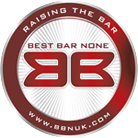We’ve spoken before about the importance of improving accessibility. This is an ongoing process and something you should regularly review. All venues want to provide exceptional customer service, and this should apply to every customer and their unique needs.
Official guidance around COVID-19 safety procedures and regulations changes regularly and rapidly. Venues must ensure they keep their employees and customers safe by following these regulations.
The COVID-19 regulations do have an impact on those with a disability. Here are our tips on improving accessibility during the pandemic…
Position your hand sanitisers effectively
Hand sanitising stations are there for everyone. Make sure they’re accessible for those in wheelchairs to use them, too.
You should have hand sanitising stations at entrances, exits and outside your venue’s bathroom facilities. Though it’s preferable to have touch-free doors, this isn’t always practicable. Instead, ensure guests sanitise their hands both before and after touching any shared doors.
It could also be a good idea to have small bottles of hand sanitiser on each table, to allow guests to sanitise their hands before eating or drinking.
Be mindful of face mask exemptions
Those with certain physical or mental disabilities may not be required to wear a face mask. In some cases, the individual may carry a ‘face mask exempt’ badge with them. Otherwise, you are required to take your customers’ word for it. If someone explains they are exempt from wearing a badge, don’t challenge your customer further. Remember – disabilities aren’t always visible.
Enforce the rules
Social distancing guidance is there for a reason. Though it may feel awkward asking customers to obey the rules, it’s vital you do so. Other guests may feel uncomfortable if people within your venue aren’t respecting social distancing. Remember – more vulnerable guests may be particularly vigilant and will require your support.
Test your routes for accessibility
With many venues implementing new one-way systems and waiting areas, it’s important this doesn’t impact accessibility.
Make sure the aisle width is accessible and ensure you have clear markings and signs throughout your venue to guide those with disabilities. You could even make sure floor markings are slightly raised so those with walking sticks or canes are able to feel them.
It’s also imperative you make sure your route takes into account accessible toilets – you must put measures in place to ensure disabled guests are able to use the facilities easily.
Improve your cleaning regime
This one’s perhaps obvious. Almost all venues will be diligently cleaning their space and enhancing their hygiene routines. It’s important to promote your cleaning rotas and make sure these are on display for all to see, thus giving your guests the comfort they may require.
Take particular care of bathroom areas, including disabled toilets. These spaces should be cleaned more frequently.
One person at a time
If your venue has lift access, make sure signage is in place advising guests not to share lifts. Only one person should use them at a time. 53% of disabled people are concerned about sharing lifts with others, but you can easily mitigate this with strong signage and advice within your venue.
Manage your queues
Venues are handling their capacity differently. Some are choosing to offer time slots, advising people to book in advance. Others are operating on a “first come, first served” basis, asking customers to queue while they wait for a table to become available.
Some people simply won’t be able to queue for a long period of time without assistance. Be flexible. Offer queuing customers a seat if they need one, and a drink while they wait. You could also consider giving disabled customers the option to book a table in advance, to avoid discomfort while queuing.
Make assistance easy
Your customers may need to ask for assistance. Your venue can make this as easy as possible by making it clear the best way to ask for help. For example – is there a dedicated server each customer should deal with, or is there written guidance on each table?
Customers may feel uncomfortable asking for help. Train your staff to recognise signals that someone needs assistance. If someone looks confused or seems to be searching for a server to speak to, make sure you respond to these signals.
People may be feeling vulnerable
A pandemic will, naturally, make most people nervous and uncomfortable. But for those with disabilities, and the particularly vulnerable, COVID-19 could present a much greater risk. Therefore, it’s important your venue provides the reassurance needed.
Make sure you communicate how you’re keeping customers safe. You should also include additional accessibility considerations. This information should be found on your website, booking confirmations and displayed around your venue. Your staff should also be trained to answer any questions customers might have.
Venues could also consider listing access information, including updated COVID-19 safety procedures, on Euansguide.com.
Can you commit to change?
Purple Tuesday, happening on 3rd November, is a campaign that encourages organisations to commit to improving the customer experience for disabled people.
Your venue can commit to:
- Identifying how you can improve your online accessibility
- Try to make improvements in your physical space
- Improve customer service by investing in staff training and awareness
- Teach your staff to learn key words and phrases in British Sign Language
- Introduce or improve quiet hours, where loud noises are reduced to help those with sensory needs
Are you dedicated to improving accessibility at your venue?
We’d love to hear about the changes you’re making. Get in touch with the NDML team or give us a follow on Twitter.







